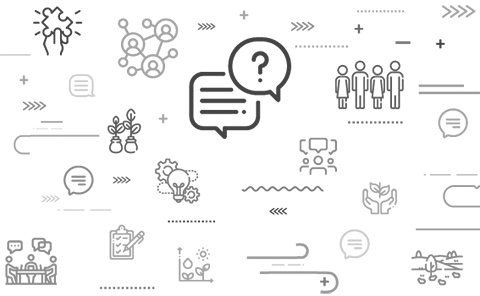
Registering Territories of Life: Questions for a grassroots discussion
Custodian communities that wish to make their territories of life more visible nationally or internationally can choose to ‘register’ them. Registering means adding community-determined information (see #Document) to a national or international online platform.
The UNEP World Conservation Monitoring Centre (UNEP-WCMC) hosts an international ICCA Registry. Participation in this registry requires support and review from groups of peers, generally from an ICCA network at country level. Communities can also enter information about their territories of life in other registries of UNEP-WCMC, such as the World Database on Protected Areas (WDPA), as well as other national and international platforms.
Registering a territory of life should only procced with the free, prior and informed consent of the custodian community. In the ICCA Registry, the community can determine what information, if any, is publicly available on the site.
Considering international registration? You may find it helpful to discuss these questions:
- Would our territory of life and community benefit from greater recognition of the site’s local and global values— e.g. for conservation, livelihoods, climate change mitigation and adaptation and other values? (Consider that the registration process may also benefit the country, which might be able to “count” the territory of life towards global biodiversity targets.)
- Would the custodian community benefit from being better recognised in its role governing and managing a territory of life?
- Would the territory of life and its governance and management systems benefit from being better documented, as this is likely to be necessary for the registration process? (See also #Document)
- Would the registration process have a positive influence on the community, e.g. by rekindling conservation knowledge and skills and fostering internal solidarity and sense of common identity?
- Would registration facilitate relationships with a network of ICCAs, allowing custodian communities to learn from one another in peer-support and review processes?
- Are there risks from the increased visibility that may follow recognition, such as undesired attention or outside people coming to take advantage of natural resources?
- Could the registration process spark conflicts with neighbouring communities, the government, or other stakeholders (e.g., private entrepreneurs, NGOs, military, etc.)?
- In light of the discussed benefits and risks, should registration be pursued for our territory of life?
- If the answer is yes, would it be more appropriate to seek it in the WDPA, in the ICCA Registry, and/or in another platform at the national or international level?
- Would it be better to make records visible to the public, or keep them private?
Importantly, WCMC does not require custodian communities to be vetted by their respective governments before submitting information for their registries. It stresses, however, that the submission of information is more trusted when a process of peer support and review has taken place prior to submission.